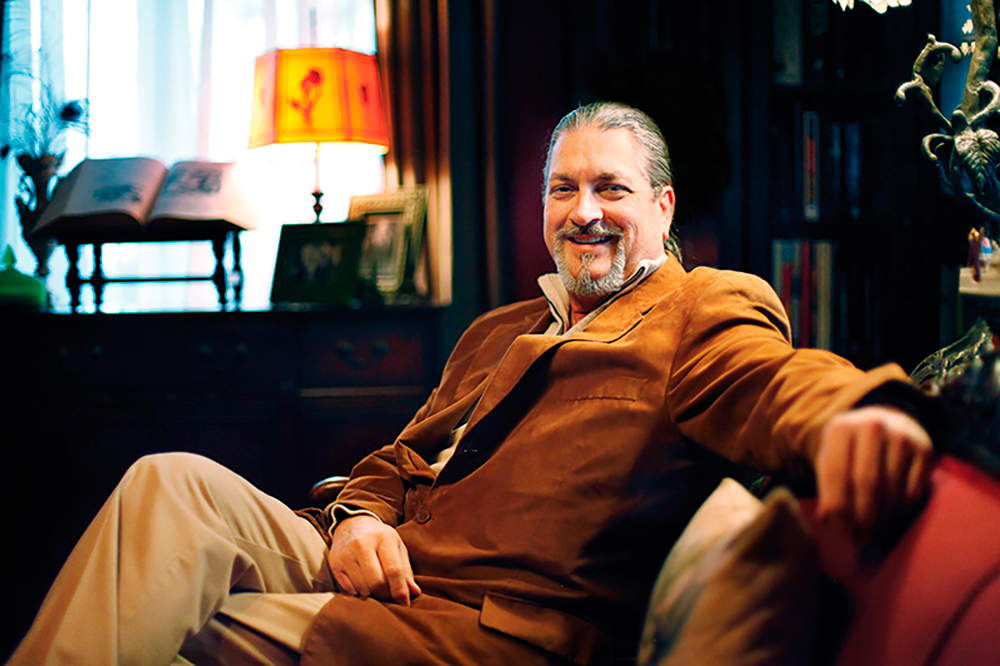
The Tryon-based Lanier Library Poetry Competition opened this week. Asheville Poetry
Review founder Keith Flynn will be the final judge. Photo by Matt Rose.
It’s not unusual for college halls, education centers, or civic buildings to be named after famous writers. But it is, ironically, an uncommon practice to see public libraries distinguished this way — simply because they are run by their respective city or county governments, and identified accordingly.
Lanier Library in Tryon is a notable exception. One of only 16 privately owned libraries in the country that are also open to the public (got that?), the picturesque venue was begun in January 1889 by a group of local ladies. The library’s first two books were volumes authored by its namesake, Reconstruction-era poet and musician Sidney Lanier, and donated by Lanier’s widow Mary.
Lanier died at age 39 after having spent his last months in Tryon trying to survive tuberculosis, contracted during his service in the Civil War. In his native Georgia, many important monuments, including the state’s longest bridge and a major lake, bear his name. His legacy in Western NC is being newly celebrated via the budding Lanier Library Poetry Festival in April, started in 2014. It’s a fitting tribute: the town is associated with many artistic iconoclasts, including Cathy Smith Bowers, a Tryon resident and the state’s sixth poet laureate. The festival’s keynote speaker last year was renowned Cuban poet and activist Richard Blanco.
The Lanier Library Poetry Competition, now closely associated with the festival, has gone on a bit longer. Now in its eighth year, it opened for submissions this week for adults and high-school students, with a deadline of March 1. Final judge is Keith Flynn, the founder/publisher of Asheville Poetry Review.
In his time, Sidney Lanier was known for two seemingly disparate concepts: a scholarly inversion of meter and his use of various local dialects in his verse, rather than the expected King’s English. His innovative spirit continues to augment Tryon’s reputation as an arts oasis.
For contest guidelines, prizes, and for general info, see www.lanierlib.org



